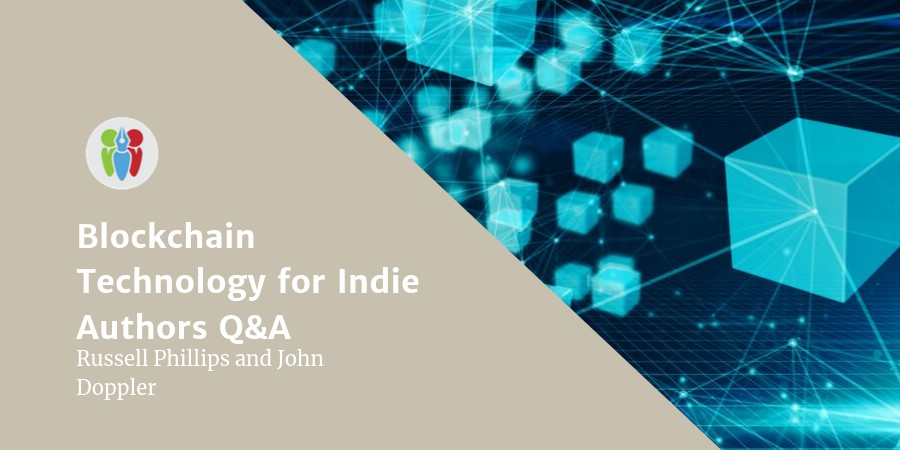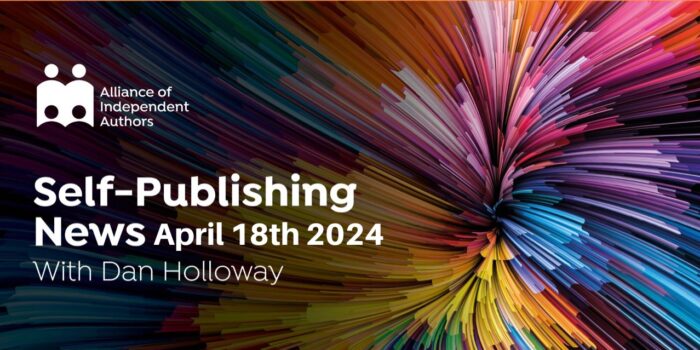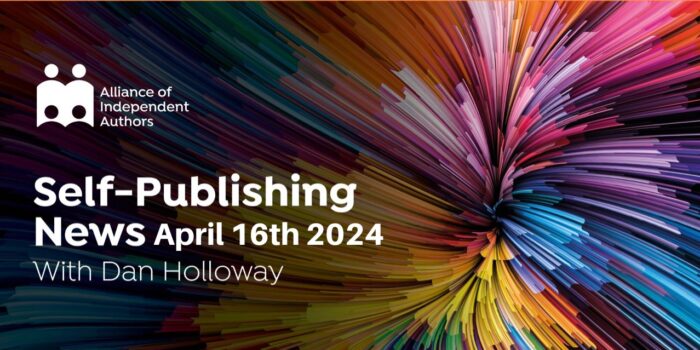
Russell Phillips asks about the implications of Blockchain for authors
“It is said that blockchain technologies will revolutionise publishing [and] ALLi has published a white paper about blockchain, which seems hopeful that it will help authors to reduce their dependency on large vendors. Blockchain may indeed be a wonderful development, but the more I read, the more I find that I have questions and concerns. We have indeed published a white paper about blockchain, which is hopeful about blockchain’s potential, a discussion document to ignite precisely this kind of discussion around this new and potentially transformative technology.”
Piracy
Russell:
One of blockchain's promises is that it will eliminate piracy. No-one has been able to explain to me just how blockchain prevents piracy, however. We all know that current DRM schemes can be cracked, but it should be noted that the encryption isn't broken. In order to read the book, the end user has to have a copy of the key. The cracking software finds the key and uses that to create an unencrypted copy of the book. Even with blockchain, the user will need a copy of the key, so what is there to stop software finding that key and using it?

ALLi's Watchdog John Doppler adds a perspective on Blockchain
John:
Portability
Russell:
One of the more intriguing promises of blockchain is the idea that a buyer can own their copy of an ebook, in much the same way as they own a paper book. Part of this is the ability to sell it second-hand. The change of ownership would be registered on the blockchain, and the original owner would lose access to the book.
The blockchain book sellers that I've been able to investigate in sufficient detail don't store the actual book files on the blockchain. All that is stored on the blockchain is a token indicating who has access to the book. The book file itself has to be downloaded from a server. This leaves open the possibility of the server being taken offline, and no-one being able to access the book, just as happened in 2019 when the Microsoft ebook store went offline.
Ownership of an ebook implies that it can be read on whatever device the user prefers. Indeed, in the ALLi white paper, the Publica CEO says that “books can be discovered by readers without having to sign in, sign up, or subscribe to any walled garden, or pay anyone except the author.” But a book bought from Publica can only be read on the Publica app.
Bookchain is another company that sells books on the blockchain. In their case, users read the book in a web browser. That is less locked down than Publica, but it also implies that users will lose access to the book if Bookchain's web server is taken offline.
John:
Copyright
Russell:
Another promise is that blockchain will allow authors to register their copyright and store that registration on the blockchain, where anyone can access it.
These look a lot like a technical version of the old practice of an author posting a copy of the manuscript to themselves. The US copyright office specifically says that the practice is not a substitute for registering the copyright, so it seems unlikely that a blockchain-based version would have any legal weight.
There is certainly a benefit in open access to the register, but that could be done with a standard database and website. It's unclear what advantage is gained by using blockchain.





There is actually a way to make blockchain-and-token e-book systems both interoperable and able to survive the demise of vendors: use EPUB, Readium, and Readium LCP. Readium (readium.org) is open-source code for implementing EPUB e-reader software. Anyone can license and use it. Readium LCP is a mostly-open-source DRM that works with Readium-based e-readers (which, full disclosure, I helped design). Readium LCP is designed to be interoperable across e-book distributors and reading systems, so that you can buy an e-book from any retailer that sells Readium LCP-packaged e-books and read it in any Readium LCP-based e-reader app or device. It’s also designed to allow offline reading; it doesn’t “phone home” when you open an e-book. This makes it able to keep working even if the retailer goes out of business.
I’ve told both Publica and Scenarex (the vendor behind Bookchain) about this, so at least they know about it. Publica was also interested in creating a retailer-independent system (on their own) but I’m not sure how far they have gotten with it.
That’s interesting, thanks. One question, though, where is the ePub file hosted? If it has to be hosted on a web server, presumably second-hand sales won’t work if the server is taken offline, even if the book can still be read by the current owner. Is that correct?
Global Warming may change the world in such radical ways that these new technologies could become redundant in a short space of time. I can imagine my grandchildren laughing the folly of blockchain economics. Read Robert Harris’s new book, Second Sleep to see where we’ll all be when we lose the internet and every other vestige of modern technology that we now take for granted! Nothing lasts forever.
*laughing at*